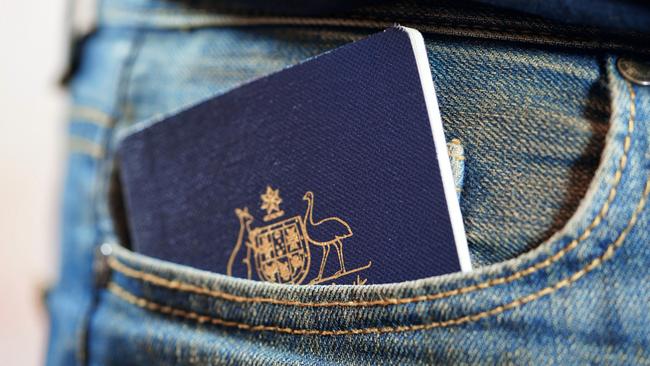Visa system overhaul: ALP talk of job losses rejected
The Home Affairs Department has attacked claims that up to 2000 jobs could be cut through the rollout of a new visa system.

The Home Affairs Department has attacked Labor claims that up to 2000 Australian jobs would be cut or sent offshore through the rollout of a new visa system estimated to be worth $1 billion.
It also rejected assertions the Morrison government was aiming to privatise the nation’s processing infrastructure.
The Australian understands the department received two bids from the Australian Visa Processing consortium and Australia Post/Accenture last month and is working through a final tender process, which will be finalised by October.
With Labor and the public sector union claiming mass job losses and publicly opposing what they describe as “privatising the visa processing system”, the department today said the government would never privatise or outsource “responsibility for visa decision-making”.
In a statement provided to The Australian, the Home Affairs Department said the tender was aimed at “reforming and modernising our IT systems and bring(ing) service standards up to meet modern expectations of convenience, accessibility and quality”.
“The government will always retain responsibility and accountability for sovereign functions including immigration policy, visa decision-making and security checks,” the department statement said.
With the US, Britain and other nations closely watching Australia’s approach to immigration processing, The Australian understands the Australian Visa Processing consortium headed by Scott Briggs — a senior Liberal Party operative, board director of the Cronulla Sharks rugby league team and confidant of Scott Morrison — has attracted interest from domestic and international investors and is also eyeing off a separate visa processing tender in Malaysia.
The Australian Visa Processing consortium proposal, overseen by former Foxtel chief executive Peter Tonagh and backed by US software giant Oracle, PwC, Qantas and NAB, has significantly grown its shareholder base in the past two months and following the close of the independent tender process in June.
New investors include Catherine Dovey, daughter of Gough Whitlam, and her husband, Kim Williams, a former News Corp Australia chief executive, corporate advisers Angus James and Colin McKeith, formerly with ABN Amro, and ex-Foxtel chief financial officer Gavin Dumsday.
They join Mr Briggs’s Pacific Blue Capital, former James Packer adviser Ashok Jacob’s Ellerston Capital, PwC and Australian Innovation Technology Holdings as investors in the bid, which is in competition with Australia Post/Accenture.
The bid led by Mr Briggs, whose company Pacific Blue Capital donated $53,500 in four tranches to the Liberal National Party of Queensland and the NSW Liberal Party in 2017-18, has come under pressure from Labor over the former NSW Liberal Party deputy director’s personal ties to the Prime Minister and Immigration Minister David Coleman.
Mr Briggs, who advised the Prime Minister in the lead-up to the August 24 leadership change last year, also heads Mr Morrison’s federal electorate conference.
The Home Affairs Department today confirmed Mr Morrison and Mr Coleman would continue to recuse “themselves from the decision-making process in relation to this procurement”.
The Australian is not suggesting there was any political interference in the matter of the Australian Visa Processing consortium’s bid.
The tender has been designed to develop a new visa business for the departmen that can process applications using a digital platform, and was last year touted as “the most significant reform to the Australian immigration system in more than 30 years”.
Currently, a quarter of applications are still lodged on paper, with much of the processing made manually.
The Australian last year reported that Boston Consulting Group was understood to be acting as an adviser to the Home Affairs Department, with KPMG recruited as a commercial adviser to ensure the process was run at arm’s length from government.
The Home Affairs Department said the new visa system would see “efficiencies gained through automation of current manual business processes” that would tackle growing demand and reduce processing times.
“This process is not being driven by a desire to reduce departmental staffing or cut costs,” the department said.
“Claims that this process will lead to wholesale job losses and office closures are simply false.”
Opposition assistant spokesman for immigration and citizenship Andrew Giles told The Australian that under the Morrison government plan, “a private corporation will be awarded a contract to run Australia’s visa system as a for-profit business”.
“This unfair plan could lead to the loss of around 2000 jobs Australia-wide,” Mr Giles said.
“It could lead to cuts to services, increased visa fraud and data security risks. Labor is also worried about the potential impact of visa privatisation on worker exploitation.
“Australians don’t want to see our visa system privatised, and they especially don’t want to see people lose their jobs.”




To join the conversation, please log in. Don't have an account? Register
Join the conversation, you are commenting as Logout